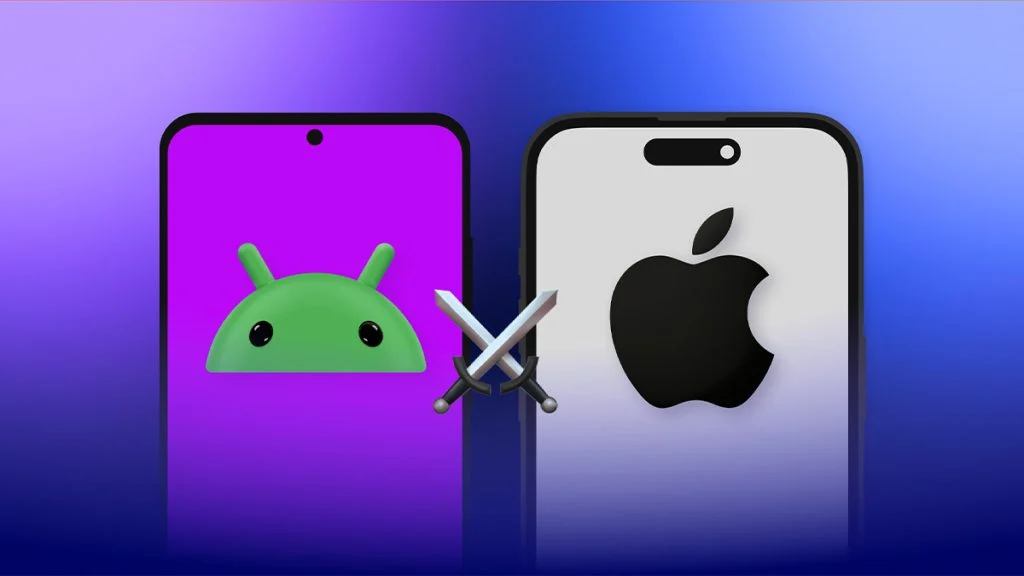iPhone vs Android: The Ultimate Smartphone Comparison 2024
The age-old debate between iPhone and Android continues to divide smartphone users. Both platforms have their strengths and weaknesses, and the choice often comes down to personal preferences and specific needs. Let's dive deep into the comparison to help you make an informed decision.
Operating System
iOS (iPhone)
- Consistency: Apple's closed ecosystem ensures consistent performance and updates
- Security: Generally considered more secure due to strict app review process
- Updates: All devices receive updates simultaneously
- Simplicity: Clean, intuitive interface with minimal customization
Android
- Customization: Extensive customization options for home screen, widgets, and themes
- Variety: Multiple manufacturers offer different designs and features
- Flexibility: More open ecosystem with greater control over the device
- Innovation: Often first to introduce new features and technologies
Hardware Comparison
iPhone 15 Pro Max
- Display: 6.7-inch Super Retina XDR OLED
- Processor: A17 Pro chip
- Camera: Triple 48MP main, 12MP ultra-wide, 12MP telephoto
- Battery: Up to 29 hours video playback
- Storage: 256GB, 512GB, 1TB options
Samsung Galaxy S24 Ultra
- Display: 6.8-inch Dynamic AMOLED 2X
- Processor: Snapdragon 8 Gen 3
- Camera: Quad 200MP main, 12MP ultra-wide, 50MP telephoto, 10MP telephoto
- Battery: 5000mAh with 45W charging
- Storage: 256GB, 512GB, 1TB options
Camera Performance
iPhone Strengths
- Consistency: Reliable performance across all lighting conditions
- Video: Superior video recording capabilities
- Processing: Excellent computational photography
- Integration: Seamless integration with other Apple devices
Android Strengths
- Innovation: Often first with new camera features
- Flexibility: More manual controls and options
- Hardware: Higher megapixel counts and advanced sensors
- AI Features: Advanced AI-powered photography features
App Ecosystem
App Store (iOS)
- Quality: Generally higher quality apps with better optimization
- Security: Strict review process reduces malware risk
- Updates: Apps are updated more frequently
- Exclusives: Some apps are iOS-only
Google Play Store (Android)
- Quantity: Larger selection of apps
- Freedom: More open ecosystem allows for alternative app stores
- Customization: Apps can be more deeply integrated with the system
- Development: Easier for developers to publish apps
Privacy and Security
iPhone
- Privacy: Strong privacy features with App Tracking Transparency
- Security: Face ID and Touch ID provide secure authentication
- Updates: Regular security updates for all devices
- Control: Granular control over app permissions
Android
- Privacy: Google's privacy controls are improving
- Security: Google Play Protect provides malware protection
- Updates: Security updates depend on manufacturer
- Control: More granular control over system permissions
Performance and Battery Life
iPhone
- Performance: Optimized hardware and software integration
- Battery: Efficient battery management
- Longevity: Devices typically last longer with good performance
- Updates: Performance improvements with iOS updates
Android
- Performance: Varies by manufacturer and device
- Battery: Larger batteries but less efficient optimization
- Longevity: Performance may degrade faster over time
- Updates: Performance depends on manufacturer support
Price Comparison
iPhone Pricing
- iPhone 15: Starting at $799
- iPhone 15 Pro: Starting at $999
- iPhone 15 Pro Max: Starting at $1,199
Android Pricing
- Flagship: $800-$1,400 (Samsung, Google, OnePlus)
- Mid-range: $400-$700 (various manufacturers)
- Budget: $200-$400 (various manufacturers)
Ecosystem Integration
Apple Ecosystem
- Seamless: Perfect integration between iPhone, iPad, Mac, and Apple Watch
- Services: iCloud, iMessage, FaceTime work seamlessly
- Continuity: Handoff features between devices
- AirDrop: Easy file sharing between Apple devices
Android Ecosystem
- Google Services: Deep integration with Google services
- Cross-platform: Works well with Windows and other platforms
- Flexibility: Can integrate with various third-party services
- Customization: More options for ecosystem customization
Target Audience
Choose iPhone if you:
- Value simplicity and consistency
- Are invested in the Apple ecosystem
- Prioritize privacy and security
- Want reliable long-term performance
- Prefer a curated app experience
Choose Android if you:
- Want extensive customization options
- Prefer more hardware choices
- Value innovation and new features
- Want more control over your device
- Are budget-conscious
Verdict
Both iPhone and Android offer excellent smartphone experiences, but they cater to different user preferences and needs.
iPhone is ideal for users who prioritize simplicity, security, and ecosystem integration. The consistent experience and long-term support make it a great choice for most users.
Android is perfect for users who want customization, variety, and innovation. The wide range of options and more open ecosystem appeal to power users and those who want more control.
Conclusion
The iPhone vs Android debate doesn't have a clear winner - it depends on your priorities and preferences. Consider your specific needs, budget, and ecosystem preferences when making your decision.
Both platforms continue to evolve and improve, so you can't go wrong with either choice. The key is finding the device that best fits your lifestyle and requirements.
Remember that the best smartphone is the one that works best for you and your specific use case.
